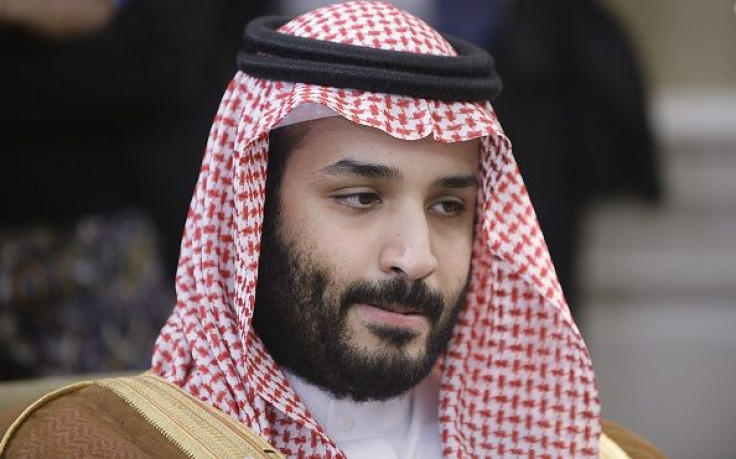Saudi Prince Seeks To Repair Ties, Promote Business On US Visit

Saudi Arabia’s powerful deputy crown prince held a full day of meetings with U.S. lawmakers Wednesday during a visit aimed at restoring frayed ties between Riyadh and Washington while promoting his plan to wean the kingdom away from oil revenue.
Mohammed bin Salman, son of Saudi Arabia’s King Salman, is expected to meet U.S. President Barack Obama Friday.
Lawmakers said his discussions Wednesday, including meetings with the U.S. Senate Foreign Relations and Armed Services committees and House of Representatives Speaker Paul Ryan, emphasized his push to help end Saudi dependence on oil by 2030.
“I know that there are tremendous cultural challenges that he’ll have to overcome, but if he’s 50 percent successful, it will be something,” said Sen. Bob Corker, the Republican who chairs the Foreign Relations Committee.
The so-called Vision 2030 plan relies on an expanding private sector, reducing government subsidies and selling shares in the Saudi state-owned oil company. It faces obstacles in the kingdom’s conservative religious establishment and a population used to government largesse.
“It was a fairly compelling vision. It was an interesting, detailed and engaging presentation of his economic vision, and then how that translates to regional stability,” said Sen. Chris Coons, a Democratic member of the Foreign Relations Committee.
Prince Mohammed’s U.S. tour, expected to last more than 10 days and including stops in California and New York, comes amid increasing tensions in the U.S.-Saudi alliance.
The U.S. Senate passed a bill May 17 allowing the families of the victims of the Sept. 11, 2001, attacks on America to sue Saudi Arabia for damages.
The White House has threatened to veto the measure, and CIA Director John Brennan said Sunday he expects 28 classified pages of a U.S. congressional report on the attacks to be published, absolving Saudi Arabia of any responsibility.
Globally, Riyadh is unnerved by Obama’s nuclear agreement with archrival Iran and wants Washington to do more to help oust Syrian President Bashar Assad.
The 30-year-old Prince Mohammed, despite his youth and his title as deputy crown prince, wields tremendous influence in Saudi Arabia, where he is also defense minister.
Corker said the prince raised concerns over the U.S. opening to Iran and Russia’s attempt to enlarge its Middle East role: “He did a good job of laying out some of the complications that have arisen ... relative to our dealings with Iran and the fact that people in the region are turning toward Russia as a second ally.”
© Copyright Thomson Reuters 2024. All rights reserved.











